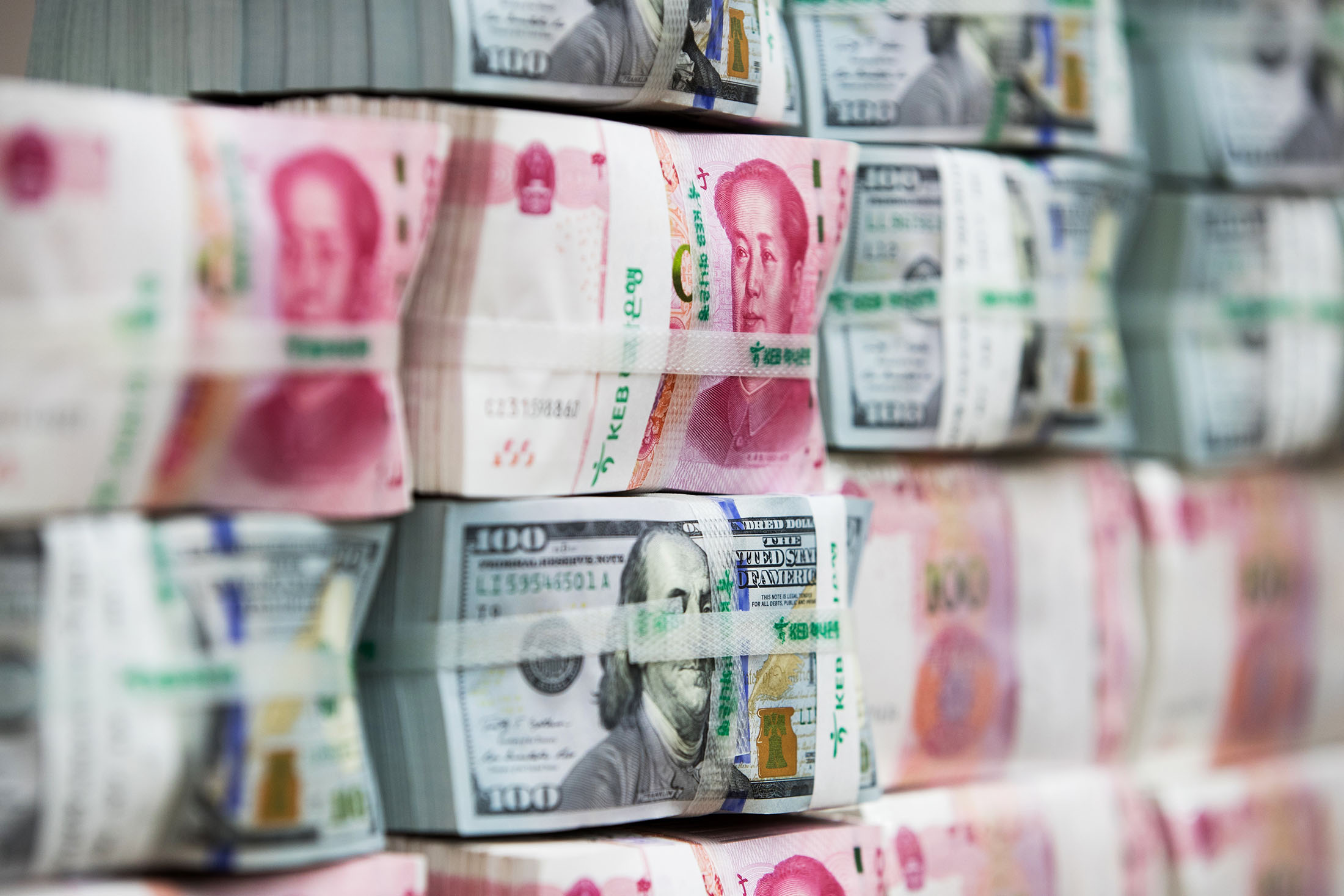
The Wall Street Journal reports: "The U.S. is due to decide this week whether to designate China a currency manipulator. While it's not expected to apply the label on this go around, the yuan has fallen more than 9% against the dollar since it last considered the move in April. Tensions between the two nations have been building since then. It is tempting to think that China must be actively pushing its currency down in an attempt to offset the effect of the 10% tariffs being imposed on its exports to the U.S. by President Donald Trump. It is also tempting to want to punish China for what Vice President Mike Pence earlier this month called 'currency manipulation' in a long list of Chinese policies in breach of 'free and fair' trade. Both are mistaken. Arguably the yuan should have weakened more. It is being pushed down by a slowing economy and easier monetary policy, at the same time that the dollar is being pushed up by the supercharged U.S. economy and higher interest rates. U.S. tariffs should lead to a weaker yuan and stronger dollar, too, even in a free market."
Fortune reports: "President Donald Trump threatened to impose another round of tariffs on China and warned that Chinese meddling in U.S. politics is a "bigger problem" than Russian involvement in the 2016 election. Asked in an interview with CBS's 60 Minutes whether he wants to push China's economy into a depression, Trump said 'no' before comparing the country's stock-market losses since the tariffs first launched to those in 1929, the start of the Great Depression in the U.S. 'I want them to negotiate a fair deal with us. I want them to open their markets like our markets are open,' Trump said in the interview that aired Sunday, while adding that more tariffs 'might' be in the mix. So far, the U.S. has imposed three rounds of tariffs on Chinese imports totaling $250 billion, prompting China to retaliate against U.S. products. The president previously has threatened to hit virtually all Chinese imports with duties."
The New York Times reports: "China's sweeping anti-corruption campaign has claimed another target: the head of a powerful state lender. Lai Xiaomin, a former Communist Party secretary and the former chairman of Huarong Asset Management, was kicked out of the party on Monday for "serious violations" of party law and regulations, including trading his power and influence for sex with several women, the government said. Prosecutors could announce specific charges related to Mr. Lai's case, the government said in an online statement. His is the latest in a string of high-profile bribery cases involving officials and tycoons as Beijing reins in China's financial sector and tamps down risky lending. Huarong helped China's biggest companies make big splashy acquisitions overseas. Several of its clients have come under scrutiny by officials for big deals, including the HNA Group and CEFC China Energy, the oil giant whose founder has been missing since February."
- 2018-10-14 'You tell me': China ambassador stumped on who aids Trump on trade
- 2018-10-12 China’s trade surplus with the U.S. hit a record $34.1 billion in September amid trade war
- 2018-10-11 The Trump administration is right to redefine relations with China
- 2018-10-10 In New Slap at China, U.S. Expands Power to Block Foreign Investments Image
- 2018-10-09 Interpol Chief Was China’s Pride. His Fall Exposes the Country’s Dark Side.
- 2018-10-07 China Acts to Shore Up Economy Amid Weight of Trade War
- 2018-10-05 China’s Small Farms Are Fading. The World May Benefit.
- 2018-10-04 US and China are at risk of a '10- or 20-year' economic cold war, former Fed governor Warsh says
- 2018-10-03 The U.S. and China are playing a dangerous game. What comes next?
- 2018-10-02 Trump's trade victories mean the White House can now 'focus all its ire on China'
- The Wall Street Journal Blame the U.S. for the Weaker Chinese Currency
- Fortune 'I Want Them to Negotiate a Fair Deal With Us.' Trump Threatens Even More China Tariffs
- The New York Times Head of Powerful Chinese Lender Is Swept Up in Corruption Inquiry
- CNN Chinese ambassador to US says Beijing doesn't know who to deal with
- Bloomberg Two Ships With U.S. Soybeans Head to China With Trade War Lingering
- Variety 'Crazy Rich Asians' Finally Lands a Release Date in China
- The Wall Street Journal Another Victim of the Trade Spat: U.S. Oil to China
- CNBC Global market turmoil could slow flurry of Chinese listings in the US
- The Wall Street Journal IMF Shows Risks in China's Debt Markets as Global Popularity Booms
- The New York Times Kenyans Say Chinese Investment Brings Racism and Discrimination
- The Washington Post Chinese online star detained for five days after singing the national anthem badly
- New York Magazine Trump Is Starting a Cold War With China to Distract From the Russia Scandal
- NPR Opinion: In Search Of Historical Parallels For China's Rise
- Foreign Policy China's Great Leap Backward
- The National Interest America Needs A Better Strategy For Competing With China — Or War Is Inevitable
- Bloomberg China Is the Climate-Change Battleground
- The Diplomat Waking Up to China's Space Dream
- The National Interest China Says It Is Developing a Laser Satellite to Spot (And Help Kill) Submarines
